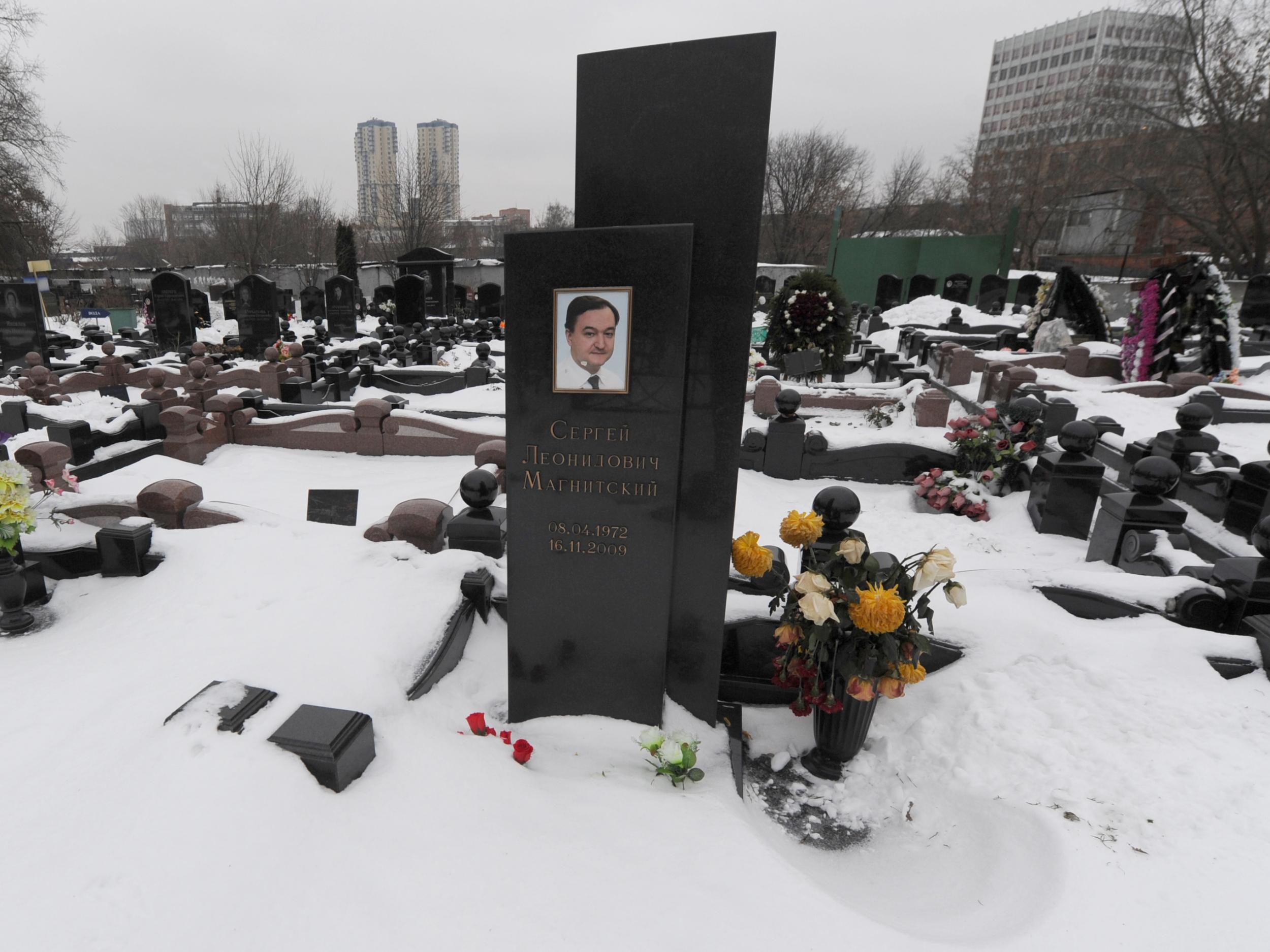Tory MP names 30 Russians linked to 'murder' amid criticism of government for failing to sanction them
Former ministers and officials have all been targeted in other countries over death of Sergei Magnitsky, but not in the UK – despite passing of legislation four months ago

A Conservative MP has named 30 Russians linked to the “murder” of the lawyer Sergei Magnitsky, amid criticism of the government for failing to impose sanctions on them.
Andrew Mitchell used parliamentary privilege to identify the individuals, who include former ministers, prosecutors, state officials and business people.
The move follows growing anger that it is four months since parliament passed legislation to allow human rights abusers to be targeted with visa bans and asset freezes.
Yet – despite two Russian intelligence officers being blamed by Theresa May for the Salisbury poisonings – the government has failed to impose sanctions on any Russians.
Meanwhile, the 30 named by Mr Mitchell have all been sanctioned in the United States, in Canada and in three Eastern European countries.
The former Tory chief whip told The Independent: “These are the people who have a prima facie case to answer for their role in the events surrounding the dreadful murder of Sergei Magnitsky.
“That is not just the view in Britain, but is supported in America, in Canada and in at least three other countries in Europe.
“I hope it will be helpful to the government to be reminded of their names, so they can impose the necessary visa and asset bans.”
The list – published on parliament's website – also includes judges, prison doctors, tax officials and investigators.
In his question, Mr Mitchell asked whether they would be included in “the list of people sanctioned under the (a) Criminal Finances Act 2017 and (b) Sanctions and Anti-Money Laundering Act 2018”.
His list includes Aleksei Anichin, a former deputy interior minister, Alexander Ivanovich Bastrykin, a former first deputy prosecutor general, Alexandra Viktorovna Gaus, a prison doctor, and Dmitriy Komnov, head of the Butyrka Detention Centre.
It was at the Butyrka Detention Centre, in Moscow, that Mr Magnitsky was tortured and died after identifying the perpetrators of a $230m fraud against an investment firm called Hermitage Capital Management.
The scandal prompted the US to pass a “Magnitsky Act”, to target human rights abusers, as far back as 2012 – but the UK government finally acted only when under fierce pressure after the Salisbury nerve agent attacks.
In a letter, seen by The Independent, a second Tory MP accuses the home secretary Sajid Javid of dragging his feet on sanctioning the Russians.
Richard Benyon wrote: “It has been four months since the Magnitsky clauses to the Sanctions and Anti-Money-Laundering Act were passed.
“We now know that the Russian state carried out a chemical weapons attack on British soil using high grade nerve agents.
“We also know of Russian individuals who have been sanctioned by other countries who can still do business in the United Kingdom.”
Mr Benyon added: “Other countries have publicly taken action against known abusers of human rights in Russia.
“Yet, despite an atrocity carried out by Russian operatives on British soil, no action has been taken commensurate with the sanctioning of key individuals named by, for example, the United States government.”
The Home Office has been asked to comment on the naming of the Russians and the criticism that it has been slow to act against them.
The 30 were named as No 10 rejected Vladimir Putin’s claims that the Salisbury suspects were civilians and had done “nothing criminal”.
The Russian president denied the two men – using passports in the names of Alexander Petrov and Ruslan Boshirov – were members of his security network.
In an address to the Easter Economic Forum in Vladivostok, he said: “Of course, we looked who these people are. We know who they are, we have found them already.
Mr Putin added: “There is nothing special and nothing criminal about it, I'm telling you,” and, questioned on whether the pair were civilians, he replied: “Of course they are civilians.”
The Russian president also expressed the hope Mr Petrov and Mr Boshirov would appear in public to dispel doubt about their true identity.
But the prime minister's official spokesman reiterated that the men were intelligence officers “who used a devastatingly toxic illegal chemical weapon on the streets of our country”.
He added: “We have repeatedly asked Russia to account for what happened in Salisbury in March and they have replied with obfuscation and lies. I have seen nothing to suggest that has changed.”
Join our commenting forum
Join thought-provoking conversations, follow other Independent readers and see their replies
Comments
Bookmark popover
Removed from bookmarks